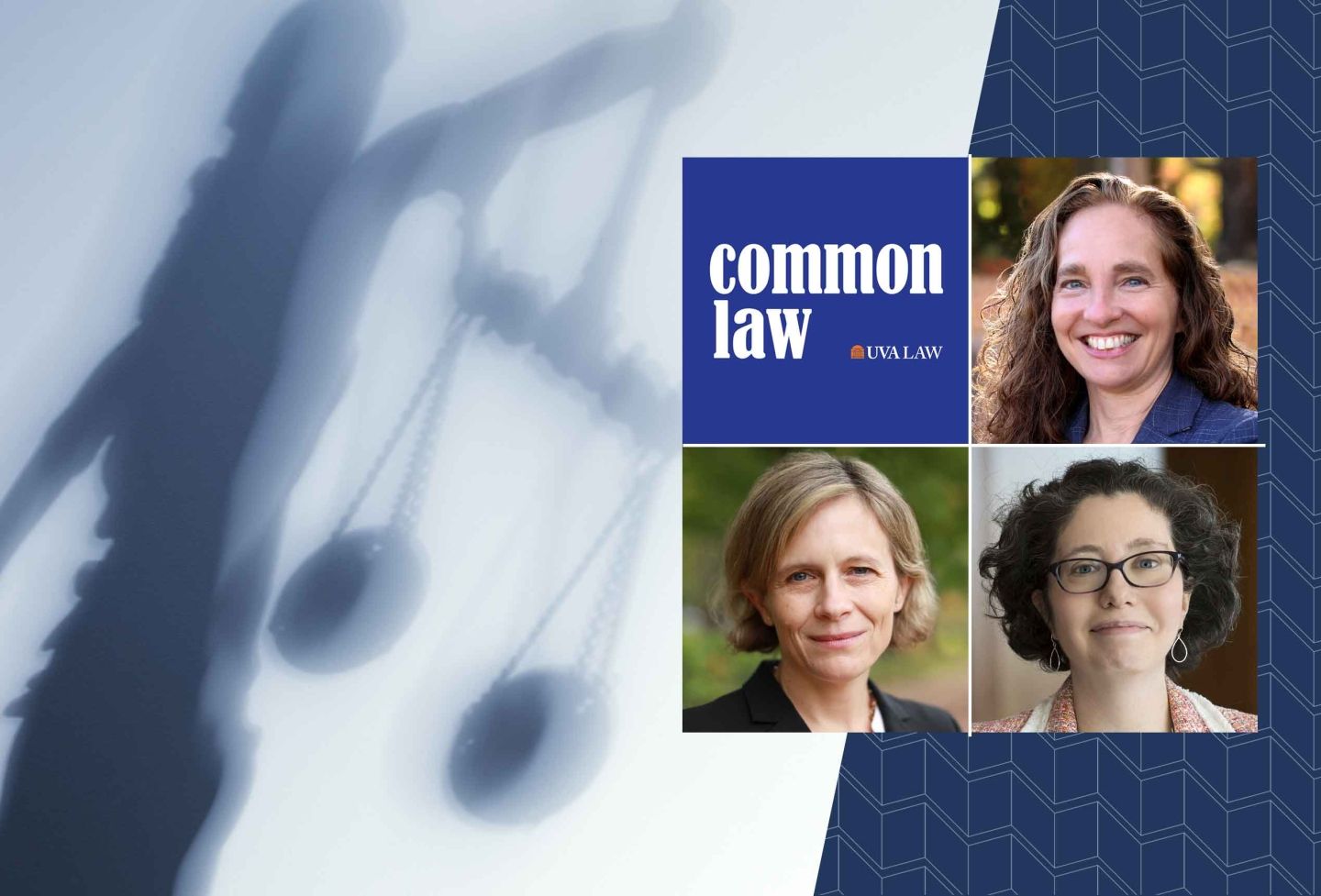Even if the election comes to an apparent tie or is razor-close, recounts probably won’t make much of a difference, according to professors at the University of Virginia School of Law, who spoke Thursday during an online discussion.
But at least one legal challenge by the Donald Trump campaign in Pennsylvania presents an interesting constitutional question, they said, while noting that Congress could also seek to intervene in the race overall.
The Karsh Center for Law and Democracy hosted the noon talk “Election 2020: What’s Next for Law and Democracy?” Professors Naomi Cahn, Michael Gilbert and Saikrishna Prakash participated in the panel, which was moderated by Micah Schwartzman ’05, the center’s director and the Hardy Cross Dillard Professor of Law.
Gilbert, an expert in election law, spoke to the Pennsylvania legal challenge. According to the Supreme Court of Pennsylvania, the state constitution requires the commonwealth to count some ballots received up to three days after Election Day. But the state statute seems to require all ballots to be returned on or before Election Day. Ordinarily the court’s interpretation of the state constitution would control, but the federal Constitution makes things more complicated.
“Article 1, Section 4 of the U.S. Constitution says times, places and manners for holding elections shall be prescribed by the state legislature,” Gilbert said.
He said it’s hard to believe the U.S. Supreme Court would weigh in after the state declares a victor, “but stranger things have happened.” And he said other challenges connected to the Trump campaign so far appear to be “pretty small potatoes” because they likely wouldn’t involve enough votes to influence the outcome.
Gilbert is the Martha Lubin Karsh and Bruce A. Karsh Bicentennial Professor of Law and director of the Center for Public Law and Political Economy at UVA Law.
Prakash, an expert on presidential power, said the Trump campaign may want Pennsylvania ballots that are received after Election Day to be omitted, and may suppose that the U.S. Supreme Court would agree. At least one justice, Samuel Alito, expressed interest in revisiting the question.
Prakash observed, “There may be some dispute about whether courts are changing the rules midstream in a manner that is supposedly inconsistent with the federal Constitution.”
If there is a tie in the Electoral College or no candidate with a majority, Congress may seek to weigh in. “If members of Congress somehow come to that conclusion that that’s happened even if others disagree, then the vote would get thrown to the House,” he said.
Jokingly referring to the current litigation phase as “The Song That Never Ends,” he added, “My general sense is recounts don’t change the outcome.” Gilbert seconded the thought.
Prakash is the James Monroe Distinguished Professor of Law and the author of two books on presidential power, including “The Living Presidency: An Originalist Argument Against Its Ever-Expanding Powers,” published by Harvard Belknap Press this year.
Cahn, who has studied the legal issues that divide Americans, focused her comments on the bigger-picture implications of the election beyond the office of the presidency.
“We’re going to continue to have a divided Congress,” she noted, looking ahead to partisan contention over the next economic stimulus, the Affordable Care Act, abortion rights and other issues.
She said early forecasts that Americans are leaning significantly left on the presidency and possibly other issues are now in question.
“It’s too early to know just how wrong the polls really were,” Cahn said. Even so, “Polling has not learned all the lessons it should and has not picked up all the viewpoints.”
Cahn is the Justice Anthony M. Kennedy Distinguished Professor of Law, the Nancy L. Buc ’69 Research Professor in Democracy and Equity, and director of the Family Law Center at UVA Law. She is the co-author (with June Carbone) of “Red Families v. Blue Families: Legal Polarization and the Creation of Culture,” published by Oxford University Press, among other books.
Founded in 1819, the University of Virginia School of Law is the second-oldest continuously operating law school in the nation. Consistently ranked among the top law schools, Virginia is a world-renowned training ground for distinguished lawyers and public servants, instilling in them a commitment to leadership, integrity and community service.


